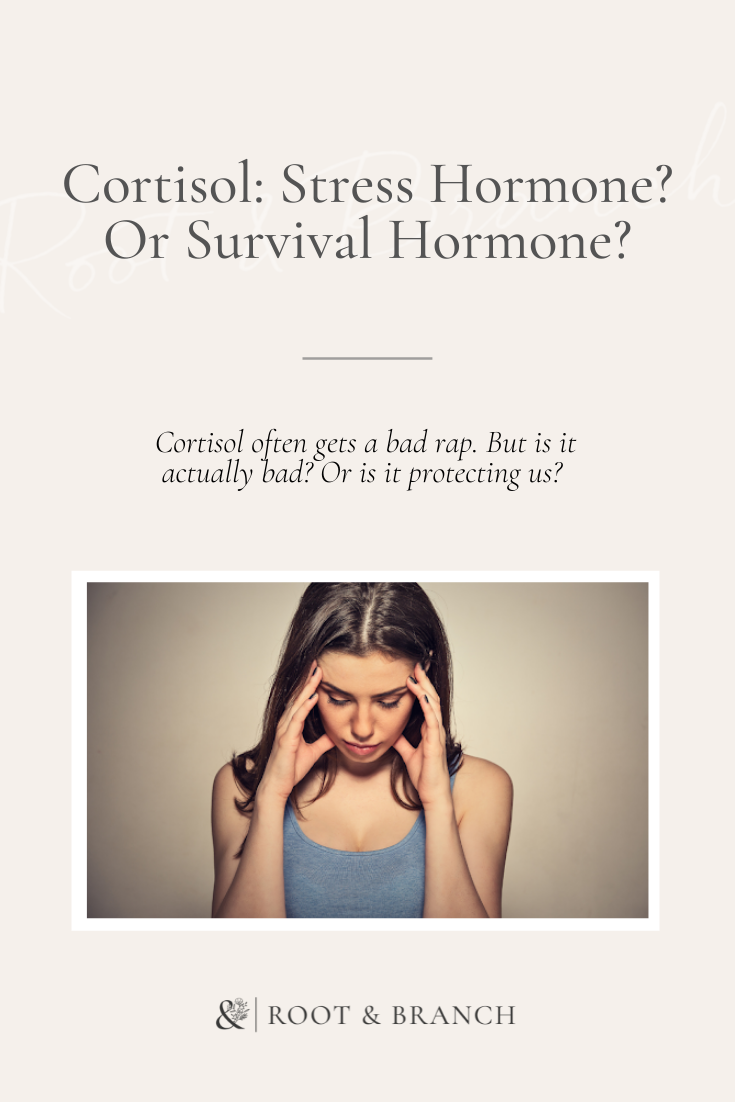Cortisol: Stress Hormone? Or Survival Hormone?
Cortisol is commonly known as our main “stress hormone” because it plays a huge role in our bodi’s response to stress.
But because of this view, it’s gotten a bit of a negative reputation. Everyone has become obsessed with and even scared of cortisol.
The truth is that while too high or even too low cortisol can be problematic, it is not a bad hormone. When it becomes out of balance, we actually need to look deeper and ask why. Because cortisol is a necessary hormone and its main job is protecting us- keeping us alive.
This is why I prefer to call cortisol our “survival” hormone.
In reality, that’s truly what the body is doing when it responds to stress- keep us alive in the face of a threat. So the brain tells the adrenals to release cortisol and other hormones to activate processes in the body that help us fight or flee from the stressor we’re up against.
But cortisol just doesn’t help orchestrate the stress response. It also regulates a bunch of vital processes throughout the body. And it’s powerful, affecting the metabolism as a whole. Almost every cell contains receptors for cortisol!
Some of the other awesome stuff cortisol does:
Regulates blood sugar levels
Increases energy
Manages salt and therefore, hydration
Controls inflammation
Directs our sleep/wake cycle
Protects us by prioritizing energy use
When stress becomes chronic, our bodies don’t get the opportunity to restore and rebalance in between stressors. It becomes more difficult to normalize cortisol levels. So they may become high, low, or out of rhythm.
Considering why that happens is more important than attacking the cortisol itself. Considering why the body is in survival mode and moving it away from that is key.
Because if you just tackle dysregulated cortisol levels without addressing the underlying root, you’re likely not going to have much success, and can even make things worse.
Balancing cortisol requires a foundation of being properly nourished to create an environment that is more resilient to stress. If you want to learn how to do that, grab my free guide to Nourishing Yourself Fully to learn the key areas to focus on first. You’ll learn how to shift your nutrition to be more supportive and will also get my go-to nourishing foods list and suggestions for simple meals and snacks!

